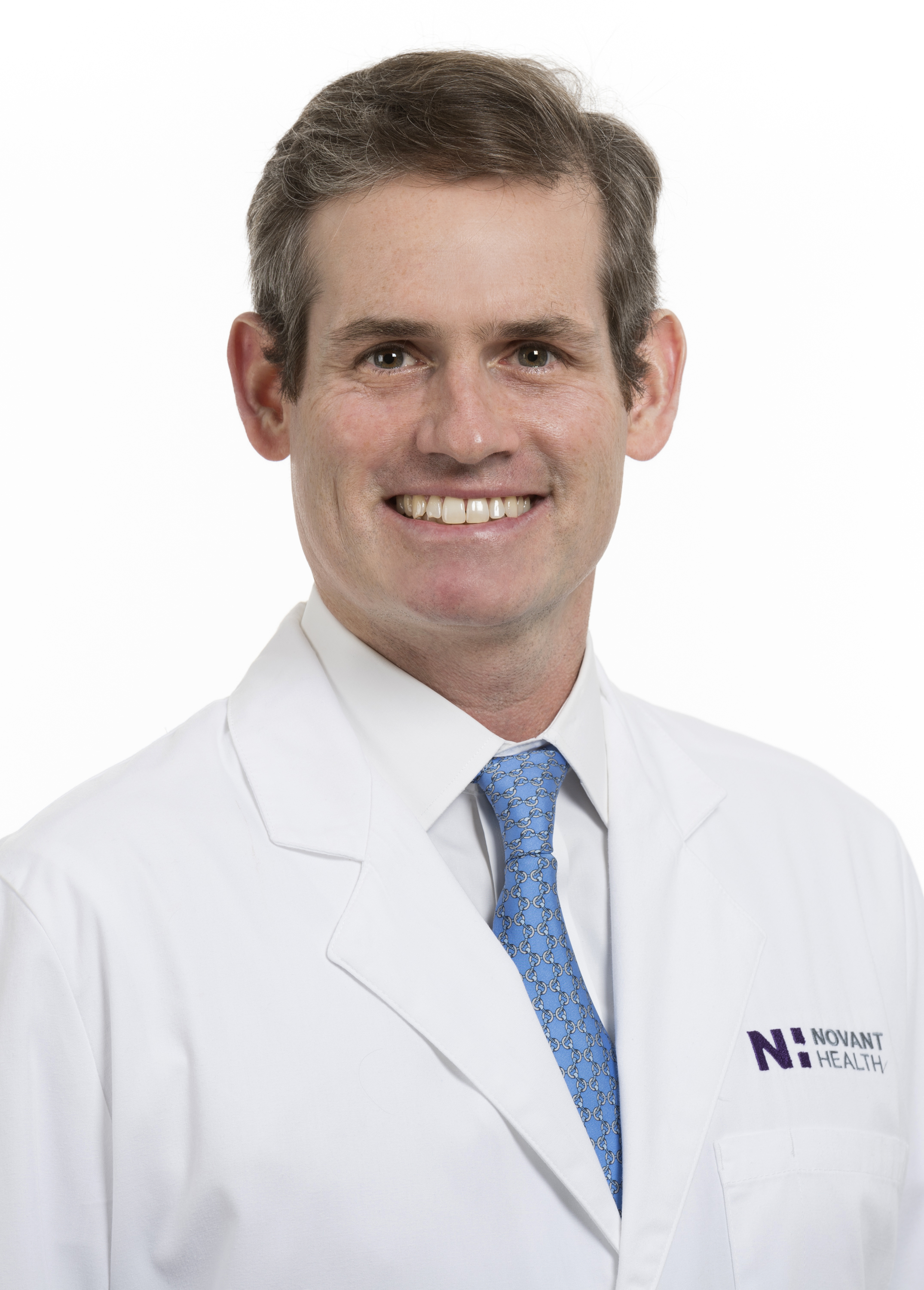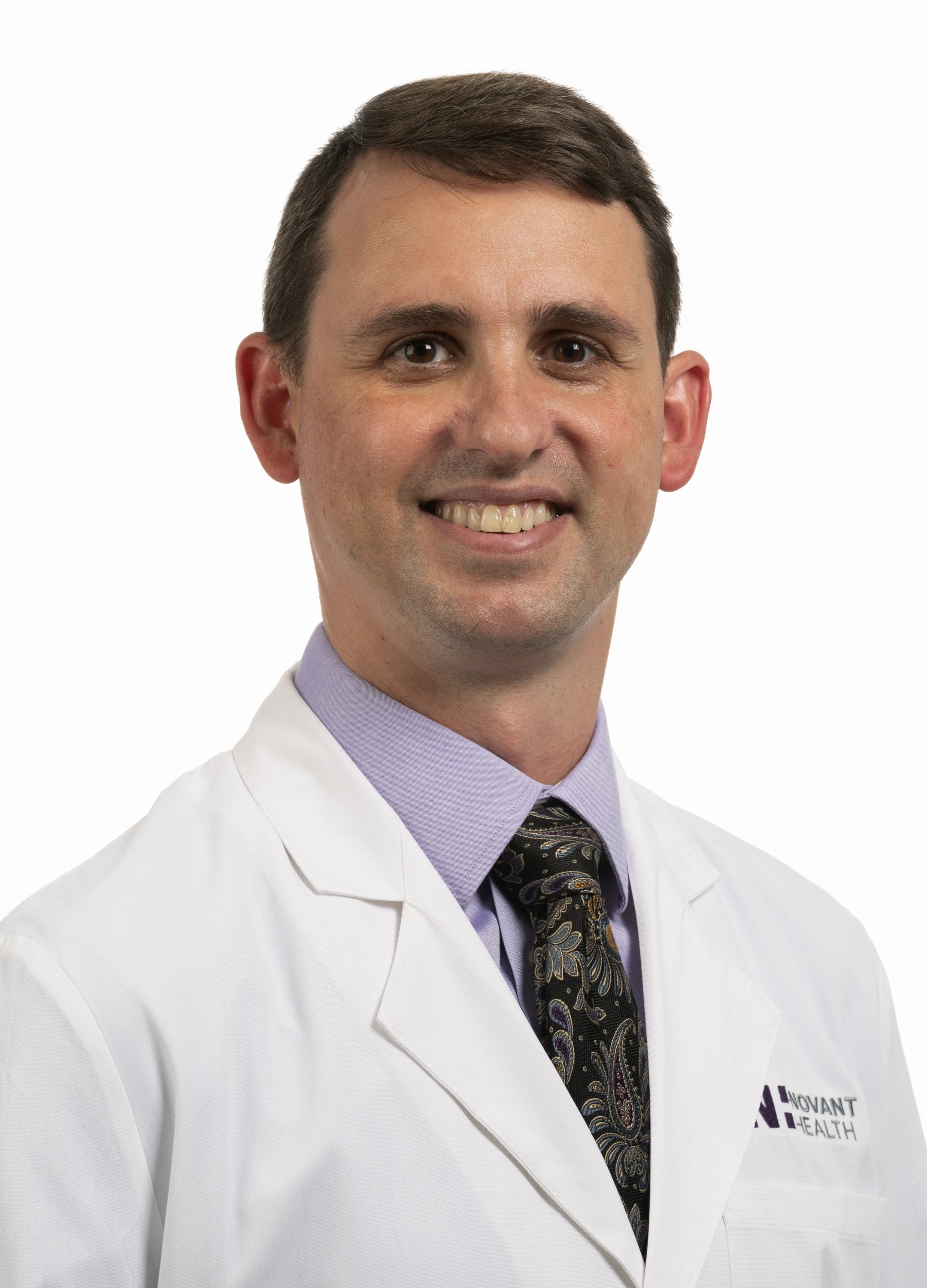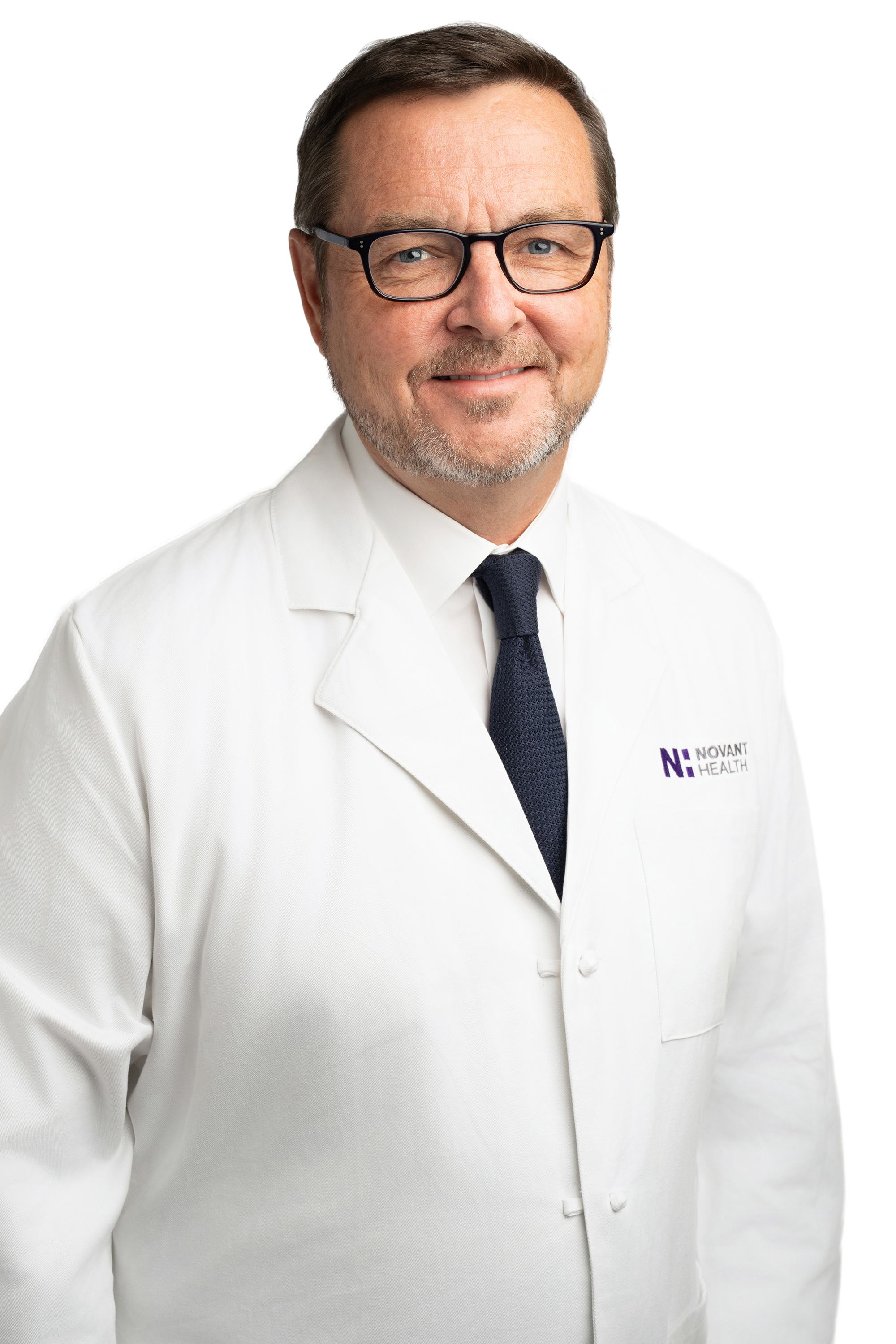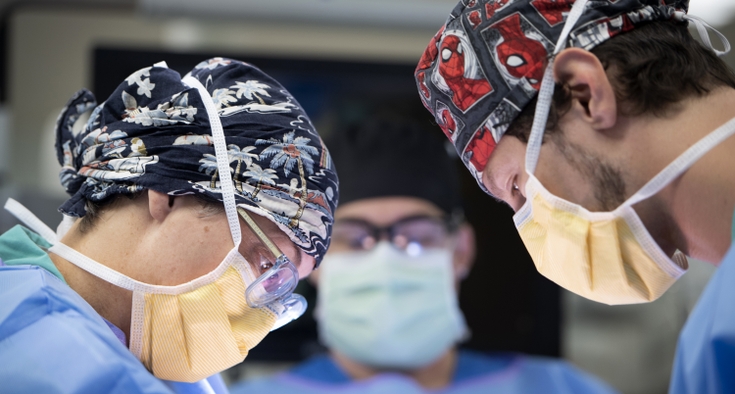A common misconception with hernias is that surgeons automatically recommend surgical intervention. That’s not the case with Novant Health surgeons.

“I like to see all hernias, even if they may not be an issue currently,” said Dr. William Hope, a general surgeon with Novant Health General Surgery & Bariatrics - Wilmington. “If the patient has concerns or questions, we can weigh in on the surgical side. And it can help to be established with a surgeon in the event that surgery does become necessary later on.”

The causes of hernia are multifaceted. “Repetitive stresses on the abdominal wall from increased intra-abdominal pressure lead to microscopic tears of tissue,” said Dr. Thomas Gavigan, general surgeon at Novant Health Carolina Surgical - Charlotte. “Over time, this can decrease the strength of tissue, predisposing individuals to hernia formation. Several instances cause increased intra-abdominal pressures that place individuals at increased risk, including constipation, physical labor, childbirth, excessive coughing from lung disease or even frequent vomiting from diseases like bulimia nervosa.”
It’s also just a common problem. One in 4 men will develop an inguinal hernia. Here are a few considerations for referring physicians when they inevitably encounter another hernia:
“We don’t automatically operate on hernias unless there’s a reason to, whether there are concerning symptoms or surgery is better sooner rather than at a more advanced age,” said Dr. Hope. “Many patients prefer to have their hernias monitored instead. We’re happy to monitor if we determine that as a safe route for the individual.”

“Small, reducible hernias that don't cause symptoms can be safely monitored,” said Dr. Paul Chandler, general surgeon at Novant Health Salem Surgical Associates - Winston-Salem. “Once a hernia becomes large, painful or is more difficult to reduce, the patient should be referred to a general surgeon.”

“Imaging is seldom required for most routine hernias,” said Dr. Steven Thies, general surgeon at Novant Health General Surgery - Coastal Carolina. “For more complex repairs, such as recurrent hernias, very large hernias or in patients with complicated surgical histories, a CT scan is often useful for planning the most effective operation.”
“When we monitor hernias, we mostly focus on symptoms. “We want to be able to catch any changes in symptoms such as the hernia increasing in size, pain and discomfort, as well as the hernia starting to limit someone’s daily activities.”
“Asymptomatic hernias are repaired on an elective basis, but those presenting with strangulation require immediate surgery,” Dr. Gavigan said. “Incarceration without strangulation is not a surgical emergency; however, the risks and benefits of surgery should be discussed with the patient, and a patient with reasonable operative risk should have their hernia repaired within a sensible time frame.”
A hernia is rarely an emergency. But in addition to incarceration and strangulation, it’s also concerning if the hernia is not able to be pushed back in, or if the patient is experiencing any unusual gastrointestinal symptoms like nausea, vomiting or constipation.
The type of hernia can influence the surgical plan.
● Inguinal hernias are common, and while these patients can be monitored, they do ultimately seek care because the hernias get bigger and more symptomatic. Novant Health surgeons often hear from patients that they wish they had gotten it fixed sooner.
● Umbilical hernias, the most common ventral hernias, are often asymptomatic and can be monitored.
● Incisional hernias, the less-common ventral hernias caused by a previous surgery, often require repair. The aim is to prevent progressive enlargement, discomfort, and the risk of complications such as bowel obstruction or strangulation.
“The best chance to have a successful outcome is after the first hernia repair, so it's important to optimize the patient prior to elective hernia repair,” Dr. Chandler said. ”Obesity and smoking increase the chance of wound infection and hernia recurrence. Referral to a comprehensive medical weight loss program can help patients lose weight prior to elective surgery, as can bariatric surgery.”
Surgical repair of incisional hernias is highly individualized, with primary approaches including open, laparoscopic or robotic techniques. The choice between minimally invasive versus open surgery is guided by patient-specific and hernia-specific factors. Tissue support is also part of the discussion.
“Modern mesh is safe and is the standard for most routine hernia repairs,” Dr. Thies said. “Risks of using mesh are very low and must be balanced by considering the great benefits in reducing risk of hernia recurrence.”
Novant Health surgeons receive hernia referrals from primary care physicians as well as many specialties. “It’s not uncommon for a specialist to be examining an abdomen during a surgical consult and to discover a hernia,” Dr. Hope said. “It’s such a common problem, so it’s one of the most common surgeries we do.”





